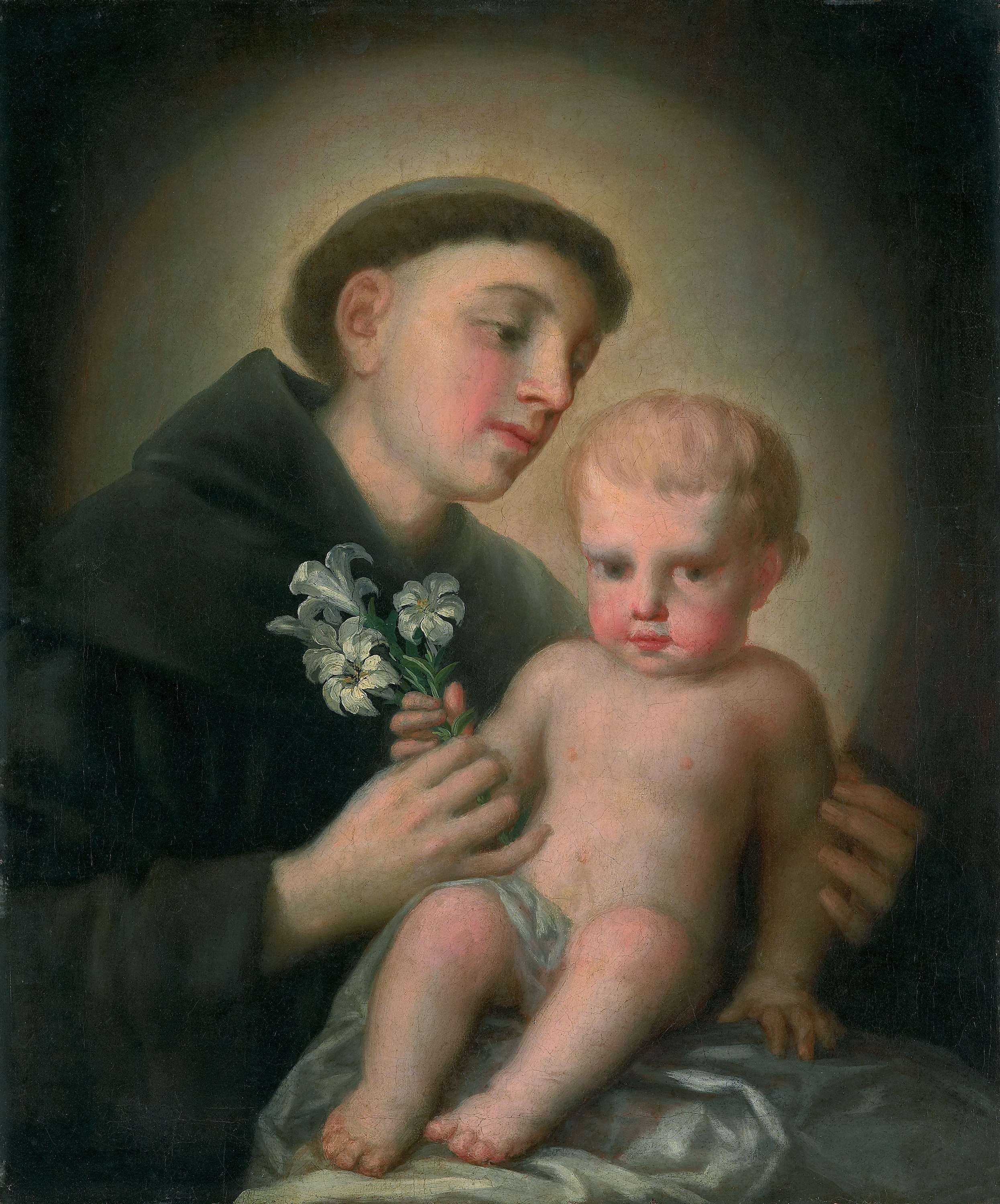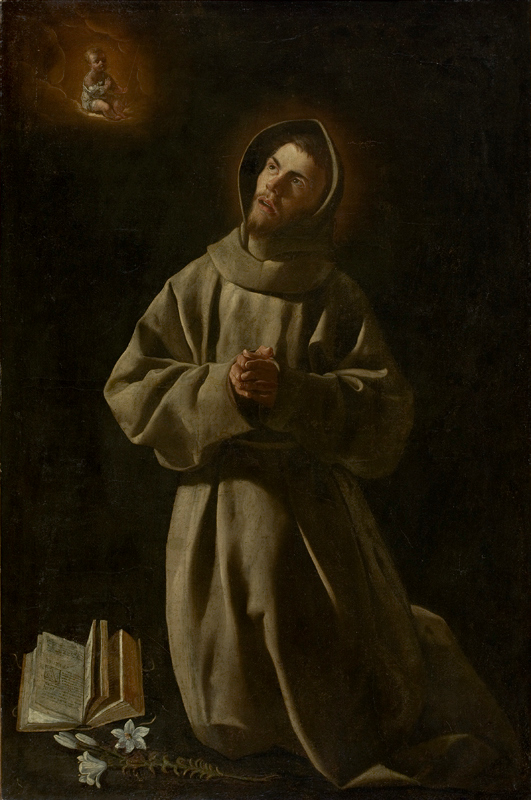
Catholic Saints
Saint Anthony of Padua (1195–1231 AD), a Portuguese Franciscan friar, preacher, and theologian, stands as one of the most beloved saints of the thirteenth-century Church, renowned for his eloquence, miracles, and devotion to the poor in an era of growing urban life and religious fervor. Born Fernando Martins de Bulhões in Lisbon, he initially joined the Augustinian Canons before embracing the Franciscan Order in 1220, inspired by the martyrdom of early friars. A Doctor of the Church, Anthony is celebrated for his Sermons, a collection of homilies blending Scripture with practical wisdom, earning him the title “Hammer of Heretics” for his defense against Catharism and other heresies. His preaching drew thousands across Italy and France, while miracles—like the bilocation at Lisbon and Padua—cemented his fame as a wonderworker. Serving as a lector and missionary, he shaped early Franciscan theology, emphasizing poverty and charity. Canonized in 1232, just a year after his death, by Pope Gregory IX, his feast day is June 13, and he was named a Doctor of the Church in 1946 by Pope Pius XII, leaving a legacy as the “Evangelical Doctor” and patron of the lost.
His feast day is celebrated on June 13.
Doctor of the Church
Born in 1195 AD in Lisbon, Saint Anthony of Padua emerged as a Franciscan preacher and miracle-worker, illuminating the thirteenth-century Church with his eloquence and compassion.
Anthony, born Fernando Martins de Bulhões in 1195 AD in Lisbon, Portugal, hailed from a wealthy family with ties to the nobility. His parents, Vicente and Teresa, provided him an education at the cathedral school, where he mastered Latin and Scripture by his teens. Raised in a bustling port city under Christian rule after the Reconquista, he absorbed a vibrant faith.
Around 1210, at age 15, Fernando joined the Augustinian Canons Regular at São Vicente de Fora, later transferring to Coimbra’s Holy Cross Monastery in 1212 to deepen his studies. This Portuguese upbringing, blending piety with intellectual rigor, shaped his early calling, setting the stage for his dramatic shift to the Franciscans.
In 1220, inspired by the martyrdom of five Franciscan missionaries in Morocco, whose relics were brought to Coimbra, Fernando left the Augustinians to join the Franciscans, taking the name Anthony after the hermit saint. Ordained a priest by 1221, he embraced Francis’s vision of poverty and preaching, initially seeking to evangelize Muslims in North Africa.
Illness forced him back from Morocco to Portugal, but a storm diverted his ship to Sicily in 1221. Joining friars at a Pentecost gathering near Assisi, his eloquence emerged when tasked to preach, shifting his path from obscurity to prominence within the Order, aligning his talents with its missionary zeal.
From 1222, Anthony’s preaching electrified northern Italy and southern France, drawing thousands in cities like Bologna, Rimini, and Padua. His Sermons, compiled later, blend scriptural exegesis with moral exhortation, tackling heresy—especially Catharism—with clarity and vigor. Known as the “Hammer of Heretics,” he converted many through reason and compassion.
Appointed lector by Francis in 1223, he taught friars theology in Bologna, Toulouse, and Montpellier, shaping early Franciscan education. His outdoor sermons—once prompting fish to listen in Rimini—highlighted his charisma, cementing his fame as a preacher whose words bridged the learned and the lowly.
Anthony’s miracles, prolific in life and legend, bolstered his sanctity. In 1226, he reportedly bilocated, preaching in Padua while appearing in Lisbon to defend his father from false charges. Other tales—restoring a severed foot, preaching to attentive fish, and revealing a miser’s heart of gold—spread his fame as a wonderworker.
His intercession for the poor, like finding lost items (earning him patronage of the lost), reflected his compassion. These miracles, documented soon after his death, fueled his rapid canonization in 1232 by Pope Gregory IX, who dubbed him the “Ark of the Covenant” for his spiritual treasures.
Anthony’s ministry championed the marginalized, preaching against usury and aiding debtors in Padua, where in 1231 he inspired a law easing their burdens. His Sermons—like those on charity and justice—urged care for the poor, embodying Franciscan poverty. Living simply, he fed the hungry, earning titles like “Friend of the Poor.”
Named a Doctor of the Church in 1946 by Pope Pius XII as the “Evangelical Doctor,” Anthony’s practical theology blended Scripture with action. His Paduan years, marked by tireless service, solidified his legacy as a preacher whose words uplifted the downtrodden, resonating across centuries.
Anthony died on June 13, 1231, near Padua at Arcella, aged 36, from exhaustion and illness, and was buried in Padua’s Basilica of Saint Anthony, a pilgrimage site enriched by his incorrupt tongue. Canonized in 1232, his feast day is June 13, reflecting his swift rise to sainthood.
Saint Anthony of Padua’s legacy lies in his preaching, miracles, and charity. His Sermons shaped Franciscan theology, his wonders inspired devotion, and his care for the poor endures as a model. Known as the “Evangelical Doctor,” his life—brief yet radiant—continues to draw pilgrims seeking his aid, a testament to his timeless sanctity.
“The saints are like the stars; they shine in the night of this world, guiding us to Christ.”
Born in Lisbon.
Born Fernando Martins.
Joined the Order.
Became a Franciscan.
Began Preaching.
Started public ministry.
Performed wonders.
Noted for bilocation.
Died near Padua.
Named Doctor of the Church in 1946.

“The saints are like the stars; they shine in the night of this world, guiding us to Christ.”
Saint Anthony of Padua Quotes
“Actions speak louder than words; let your deeds be your sermon.”
“The poor are the treasure of the Church, for in them we serve Christ Himself.”
“Charity is the soul of faith; it gives life and sweetness to all virtues.”
“The Word of God is a fire that burns away sin and kindles the heart with love.”
“Seek the kingdom of God first, and all else will be added unto you.”
“Humility is the foundation of all virtue, for it opens the soul to grace.”